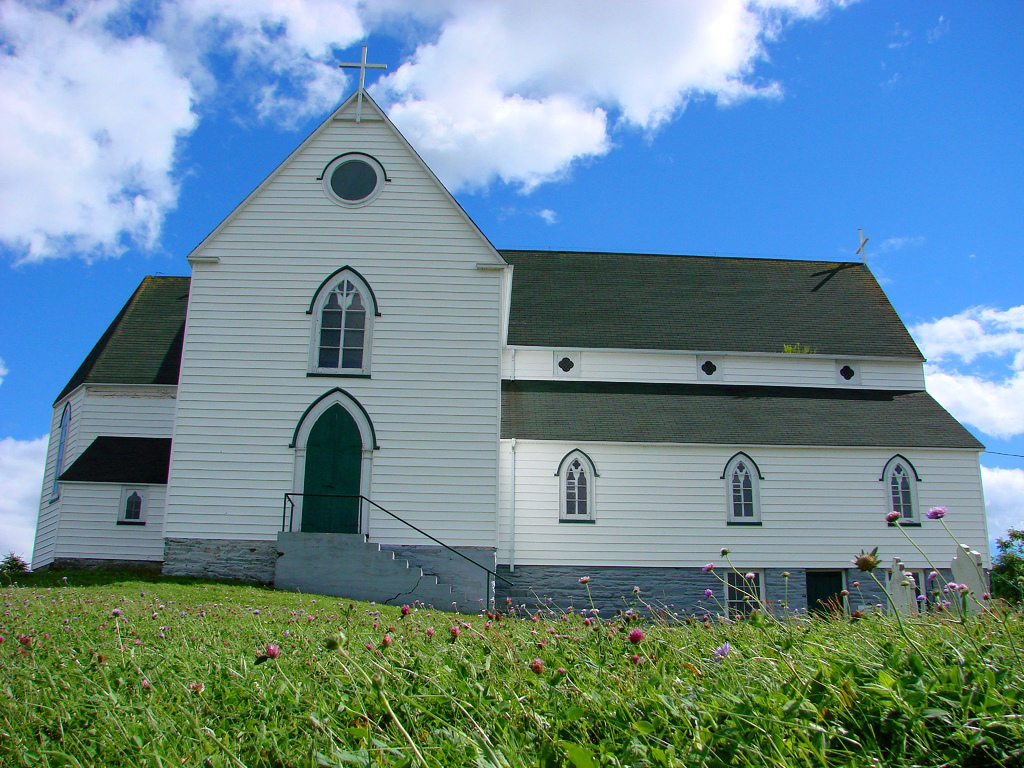 Most all of us have been cared for by a medical doctor (M.D.). These physicians attend traditional, allopathic medical schools, which focus on treating symptoms and conditions with pharmaceuticals and physical interventions like surgery. Some M.D.s decide after completing medical school that they would like to learn about nutrition and disease prevention. These doctors receive additional training by their own initiative. Many of them call themselves functional medicine practitioners and are listed on www.functionalmedicine.org. Some call themselves holistic physicians and are listed on www.holisticmedicine.org. My children's pediatrician is a holistic physician. She's an M.D. but she offers natural remedies in addition to pharmaceuticals. I found her through Dr. Sears' vaccine-friendly pediatrician list. You may have been cared for by an osteopathic doctor (D.O.) and simply assumed it was an M.D. They practice alongside M.D.s in hospitals and doctors' offices and have the same qualifications. Osteopathic doctors can choose any specialty, prescribe drugs, perform surgeries, practice anywhere in the United States, and can own a medical practice. The main difference between the two is that while D.O.s learn the same content as M.D.s, D.O.s attend medical schools that promote overall wellness and disease prevention. From the first day of medical school D.O.s are taught to view the body as much more than a collection of individual organ systems that may become diseased. They understand that if one organ system is diseased, the whole body is out of balance. I usually prefer to see a D.O. instead of an M.D. because it's more likely that the D.O. will consider alternative treatments. For example, my former endocrinologist was a D.O. and she was willing to prescribe Armour Thyroid, a natural porcine-derived thyroid hormone replacement. Most M.D.s will only prescribe synthetic forms of thyroid hormone, such as Synthroid or Levoxyl. My primary care physician is also a D.O., and I have noticed that he doesn't simply focus on my symptoms. Instead, he discusses with me his thoughts as he attempts to determine the causes of my symptoms. He's also not drug-happy, although he does recommend them if he feels they are absolutely necessary. But beware; I've seen other D.O.s who seem no different than a typical what're-your-symptoms-here's-your-medication doctor. This is because pre-med students sometimes choose to attend osteopathic medical schools based on affordability or proximity, and not necessarily because they have a desire to focus on overall wellness. You have probably not been treated by a naturopathic doctor (N.D.) without knowing it. Naturopathic doctors work with nature to restore health and they usually do not prescribe drugs or administer vaccines. In 1902 the first class of N.D.s graduated from American School of Naturopathy in New York, the first naturopathic medical school in the United States. It was founded by Dr. Benedict Lust, who was cured of tuberculosis by natural means. His hope was to train doctors to integrate the practice of natural methods such as botanicals, nutrition, accupuncture, homeopathy, and maniupulative therapy. Naturopathic medical students receive the same training as M.D.s and D.O.s., and are often taught by the same professors who teach at allopathic and osteopathic medical schools. The difference is the philosophy and the additional training that N.D.s receive in natural therapies. Naturopathic doctors are licensed in the following states and U.S. territories: Alaska, Arizona, California, Colorado, Connecticut, District of Columbia, Hawaii, Idaho, Kansas, Maine, Minnesota, Montana, New Hampshire, North Dakota, Oregon, Utah, Vermont, Washington, Puerto Rico, and Virgin Islands. Naturopathic doctors do practice in other states, but insurance will not usually cover the visit. If you live in a state that does not license N.D.s, be careful that you know the difference between someone who graduated from a licensed medical school and someone who has completed a certificate in natural medicine and is calling himself a naturopathic doctor. It is not illegal to call yourself a naturopathic doctor in states where the profession is not licensed. If you plan to see a N.D. I recommend you find one through the American Association of Naturopathic Physicians Website. This is not to say, however, that those who complete health-related certificate programs are unable to help you, but if you'd like to find a N.D. who has attended a licensed medical school, use the AANP website.
2 Comments
 This recipe comes from the book Everyday Paleo: 1 lb grass fed ground beef 1 bunch kale chopped 1 white onion sliced 1/2 of a green, red, and yellow bell pepper sliced 1/2 cup pimento stuffed green olives 3 tbsp olive oil 1/2 tbsp ground cumin 1 tsp ground coriander 1/2 tbsp turmeric powder 1 tbsp dried oregano Pinch of saffron threads (optional) Sea salt and black pepper to taste 3 sweet potatoes 1 ripe avocado In a large skillet brown the ground beef. Add the bell peppers, onions, and olive oil and saute until the onions and peppers are tender. Add all of the spices and mix well. Add the kale and green olives, continue cooking stirring often until the kale is tender (about 4-5 minutes. Serve over mashed sweet potatoes with a side of sliced avocado. To quickly prepare the sweet potatoes, peel and quarter the potatoes and cook in a pressure cooker for 12 -14 minutes. I love this dish because I enjoy the pungent flavors of the spices and olives. Unfortunately the rest of my family does not, so I make one for me and another for them which doesn't include olives and minimizes the spices. I think I'm gonna go make some now! I don't say that proudly, so don't assume I'm a heathen so quickly. When my husband and I got married he was already an active member of a church, so naturally I started attending his church. When our first baby was born I knew that we would have issues with attending church because I was not planning to leave our son in the nursery without us. I tried to bring him into the sanctuary with us, but once he became a little noisy and squirmy people would stare, some would actually ask us to take him out (he wasn't that noisy), and I would have to leave the sanctuary. I usually took him into the nursery and sat there with him, the nursery workers, and the other children.
When he was nine months old we moved to a different city and embarked on a very difficulty, yet edifying, spiritual journey: finding a church. If I remember correctly, we visited seven churches. Every church bombarded us with flyers about their wonderful children's programs, and well-meaning people reminded us over and over again that they had a nursery staffed with trained (sometimes) caregivers. We attended one church several times and thought that it might be "the one," so I caved to everyone's suggestions and let my 11-month-old son go to the nursery. The nursery worker was an older woman and there was only one other child in her care. The children's minister assured me that if there was any problem they would flash my child's number across the screen in the sanctuary so I would know to check on him. It seemed like a good nursery situation. I was a nervous wreck throughout the entire service. As soon as the final prayer was said I bolted to the nursery, only to find my son crying. The first and only words out of the nursery worker's mouth were, "He cried the whole time." I was furious. What's the point in having a paging system if you're not going to utilize it?! My poor baby. So we tried a different church and this time when he became noisy I took him to the nursery and stayed with him. The nursery worker kept trying to convince me to leave. At one point she left me in the room alone with the children for several minutes. This was not the church for us either. What if she left my son alone with some stranger? Actually, she was a stranger. What if I left my son alone with her? Why was it so difficult to find a good church?! We weren't asking for much, really. All we wanted was a church that was welcoming to children worshiping and learning along with the adults. I'd imagine the early church welcomed this. We did find a church with a cry room, which I don't necessarily agree with, but thought it might be tolerable. For those of you who don't know, a cry room is a room where parents can sit with their young children who are being disruptive to the service. It usually has speakers wired so that parents can still hear the sermon. Unfortunately, when I took my son to the cry room the other kids were mean, as usual, and their parents weren't watching them. They were just talking with one another. So that wasn't going to work. What was the point of me even going to church? I didn't ever get to listen to a sermon, and there was never an opportunity to fellowship with other families. Sure, they had adult Sunday School and Bible studies, but children were not welcome. The purpose of church is to fellowship with, learn from, and worship with other believers, and we were not able to do any of that. After my husband finished college we moved to our current city. This time we had two little kids. Again we continued our journey of finding a church. We visited about five churches. The one we thought we had decided on was everything we were looking for as far as preaching and teaching. The pastor was very sincere in his devotion to God, and the church had a Christian school and a homeschool group, so they obviously valued Christian education highly. But the service was still not child-friendly. Every time we went inside the sanctuary with our children people would tell us about the children's program. I finally gave in once again and let my son go to the three-year-old Sunday School class. Sunday School was just for 90 minutes per week. How much could my son be negatively influenced in that 90 minutes? And at least these were kids of church-going people. I regret that decision so much and it makes me sad to even think about it. My son was so excited about Sunday School. He had his backpack with his snack and drink and I told him there would be toys and other kids. I also told him Mama and Daddy would be in the sanctuary for a little while but would come back to get him soon. He was at the age where he understood that. When we walked into the room there was one girl screaming and dragging her head on the floor. My son looked horrified. We quickly stepped over her and headed for the play kitchen. I showed my son the kitchen toys and then some kid ran over to us, took the toy out of my hand, threw it on the floor, and started yelling something in jibberish. My son was trying to hold back tears as I told him I would have to leave for a little while but would be back later. He began to cry. I took him to the teacher and she introduced herself but didn't offer to hold him or play with him or anything. So he just stood there beside the teacher, holding back tears, feeling sad and lonely, as we made our way to the sanctuary. The children's minister told me it was normal for kids to cry as they get used to being without Mom and Dad, and that it would be good for him. I wanted to tell her, "Thank you for validating the fact that you know nothing about child development and attachment, and for making me feel even worse about what I just did." We ended up leaving the service early because I just couldn't stand myself. I'm his mother. I know what's best for him--not some children's minister or volunteer nursery worker. If we can't find a church that welcomes children then we just won't go to church. There was supposedly a sign in/sign out procedure. I had a sticker with my son's number on it and I was supposed to give it to the teacher so that she could match it up with the sticker on my son's shirt, identifying me as his parent. But when I went to pick him up there were two new teachers in the room, the one I had left him with was gone, and no one asked me for the sticker. I asked them how he was. They said he cried some and that he's such a sweet boy, and asked if he was three (he had just turned three, whereas everyone in the class was closer to four). I hated that. He was already a late talker. With that, and being the youngest in the class, he had a difficult time communicating with the other kids. Shortly after we left, my husband and I noticed a red mark across our son's face. I assumed he scratched himself on a toy or something but thought I'd take him back to the classroom and ask the volunteers if they knew what it was from. One lady ignored me and the other said, "Maybe he fell, I don't know," and walked away. This is supposedly a church with one of the best children's programs in the city! I guess that's because of the pretty murals on the walls and the huge donated McDonald's play structure in the basement. My son couldn't speak well enough to tell me what happened, other than letting me know that he didn't have fun. So I left, very upset, and this time decided that my kids would never go to nursery or Sunday School again. I'm just glad my daughter has never had to experience that. About a year after that incident, when my son learned to communicate better, he told me that when he was at Sunday School that day the kids were mean to him, screamed at him, took toys from him, and made him cry. But the teacher was nice, he said. So we haven't been to church in about two years. I have had no regrets about that decision. I know what you're thinking. I've heard it before: If they don't experience children being mean to them they won't be prepared for adulthood. WRONG. Since when do adults get screamed at and have toys snatched out of their hands while they're going about their day? And besides that, I want to teach my kids about God. Explaining Biblical concepts to young children is a delicate balancing act and if I send my children to Sunday School I have no idea what they are being taught, how it is being taught, or what my children might be confused about. It's my responsibility anyway. Our kids are three and almost five now. They are finally able to sit fairly quietly during a church service. We will probably try attending church again soon. I still don't think there will be much opportunity for fellowship though, since we are not willing to put our children in child care while we go to an event for adults only. A few months ago I was talking to a friend about our difficulty finding a church and she told me about a website called The National Center for Family Integrated Churches where you can search for churches in your area that implement a family-integrated (also called age-integrated) worship model. I was thrilled and relieved to learn that there are people like me! These churches come in all different shapes, sizes, and denominations, but all hope to restore the biblical pattern of age-integrated worship, discipleship, and evangelism. These churches believe that families benefit spiritually from worshiping together, that parents (not Sunday School teachers or youth pastors) are responsible for the child's spiritual development, and that young people need to learn from adults, which cannot happen when the children are in a completely different room (or even a completely different building) from the adults. It's time for the church to stop spending money on toys, DVD curricula, and play structures, and start investing their time, money, and energy into equipping parents, so that they feel confident enough to disciple their own children. Deuteronomy 6:6-9 These commandments that I give you today are to be on your hearts. Impress them on your children. Talk about them when you sit at home and when you walk along the road, when you lie down and when you get up. Tie them as symbols on your hands and bind them on your foreheads. Write them on the doorframes of your houses and on your gates. |


